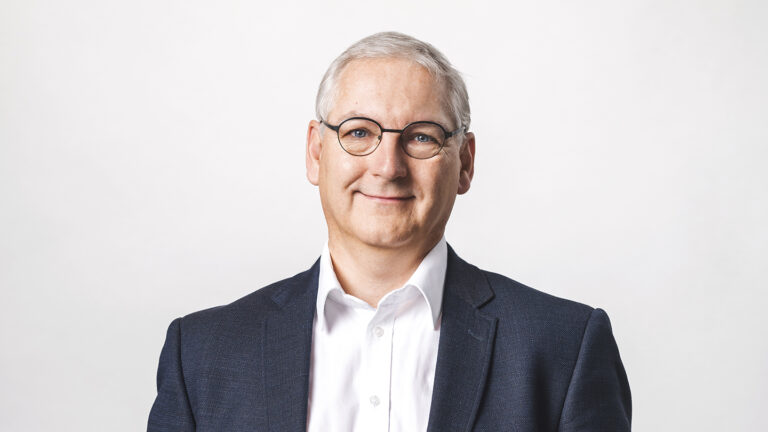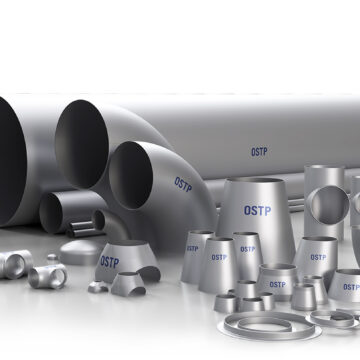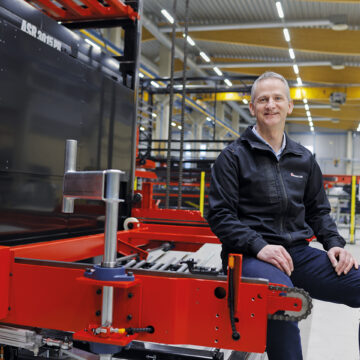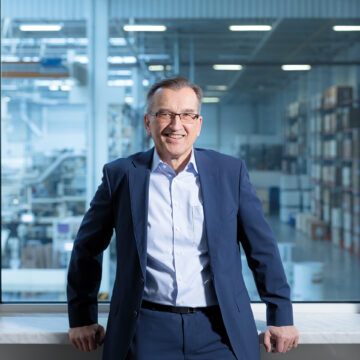
Forest industry’s third wave
The world’s largest bio-fuelled power plant ensures that the forest industry combine is self-sufficient in energy and that the surrounding vicinity gets environmentally friendly electricity and district heating. In the first decade of the 21st century, the forest industry was considered to be a sunset industry. Internet was revolutionising human communication and all information previously printed on paper became increasingly digitalised. However, just as the outlook of the forest industry was of the gloomiest, a digital revolution set off that had unpredicted side-effects – as e-commerce exploded, the demand for cardboard and packaging paper increased as well. In addition, the demand for tissue paper increased due to increased standard of living in developing countries. The forest companies in Alholmen Industrial Park (AIP) in Jakobstad, one of the classic mill villages for forest industry in Finland, reaped benefits from the development.
Another fostering factor was the increasing demand for renewable energy. Bioeconomy is based on the fact that forest is a renewable resource and that the green gold in essence is biomass, which can be used in the fight against climate change. Using bio fuel instead of fossil fuel in energy production, and producing biodiesel and bioethanol for motor vehicles, are the foundations of the energy policy in Finland.
”The operators in AIP were in fact global forerunners in bioeconomy long before the concept was taken into use. Already in 2002 the world’s largest bio-fuelled power plant was set up in the area”, says Jarl Sundqvist, CEO at Jakobstad Region Development Company Concordia.
AIP is a miniature image of the technical and economic development which in the 20th century made Finland one of the world’s richest and most advanced industrial nations.
In 2017 the independent Finland celebrated its 100th birthday, and several different analyses on which factors have impacted and formed today’s Finland have highlighted the forest and forest industry as the very central ones.
”It’s impossible to imagine a Finland without forest. We may thank the green gold for being able to live in a Nordic welfare society. Finns have, for thousands of years, lived in harmony with the forest, survived and utilised it to create welfare”, goes one of the leading newspapers’, Hufvudstadsbladet’s, motivation. The newspaper ranked the forest as the most important factor in Finnish nation-building – being even more important than the declaration of independence and the Finnish defensive victory in the Second World War.
Bioeconomy is the third green gold-wave sweeping across Finland since the start of forest industry. In every development stage, the degree of product refining has increased, and in every stage the companies in AIP have been key players.
The first expansion phase in the forest industry was in the late 1800s when Finland started producing and exporting sawn timber. This was also the time for the establishment of the forest industry in Alholmen – the Alholma sawmill was founded in 1896. The next step forward was taken in the 1900s when Finland became one of the leaders in the chemical wood processing industry. The cellulose factory in Alholmen was founded in 1935 and the paper factories in the early 1960s. When the internet and digitalisation in the first decade of the 2000s radically changed the playing field for the paper industry, AIP was one of the paper industry combines that came out as winners. The reason was that the factories in Alholmen mainly produce pine and spruce cellulose, as well as packaging paper and packaging.
When the Finnish forest industry’s third phase – the bioeconomy – picked up pace, the players in AIP were well poised. AIP boasts two completely unique plants. One is the world’s largest bio-fuelled power plant, Alholmens Kraft, which burns spill products from the sawmill and cellulose factory in Alholmen. The other one is the recovery boiler built by UPM in 2004, which back then was the largest one in the world. The boiler is used for burning chemical by-products from the cellulose process, and at the same time, the burning also generates electricity, of which a part is used to power the factory and the rest is sold.
Despite substantial rationalisations in forest companies in the 2000s, the number of employees in AIP is almost the same as in the paper industry’s most labour intensive years in the 20th century. Today, AIP comprises more than 60 companies employing over 1,900 persons. Most of them are service producers or suppliers of the forest industry, however, in the 2000s, also companies from unrelated lines of business have established themselves in the area –thanks to the port and the advanced infrastructure that has evolved around the forest industry.
”The industry park has a deep-water port, an electrified railroad track, access to locally produced energy and heating as well as a purification plant. In addition, the nearby region can provide qualified work force”, says Jarl Sundqvist.
Two world-leading manufacturers of luxury yachts, Nautor and Baltic Yachts, are among the more recently established companies in the area. Both Nautor and Baltic are long-established in the Jakobstad region, but the closeness to the port and the good infrastructure have made them set up manufacturing facilities for building the world’s largest sailing boats in Alholmen.
Alholmen’s and the forest industry’s significance for the trade and industry in the Jakobstad region is not limited to Alholmen Industrial Park only. Several of the export companies operating in completely different fields of business have started as spin offs or subcontractors to the forest industry factories, e.g. Beamex (page 56 in this magazine) and Fluid-Bag (page 58).
The next step for Alholmen could be a biofuel plant – one company is already researching the possibilities for establishing one.
”Finland’s climate strategy aims to cut the dependence on imported fossil oil and consequently there is both political support for, and economic interest in, production of biofuel. Alholmen can offer the infrastructure required for a smooth launch of the production”, says Jarl Sundqvist.
Integrate connections of Jakobstad pulp mill
The basis of Alholmen Industrial Park is the forest industry combine. UPM’s cellulose factory supplies the raw material for BillerudKorsnäs’ kraft paper machine which, in turn, makes raw material for Walki’s packaging plant. Alholmens Kraft burns spill products from UPM’s saw and cellulose factory, while the cellulose factory’s recovery boiler burns by-products and produces excess electricity.


Suppliers and spin-offs
Today, more than 60 companies operate at Alholmen Industrial Park. The combined turnover of these companies amounts to more than a billion euros, of which 850 million is exported. During the 2000s, two renowned manufacturers of luxury yachts – Nautor and Baltic Yachts – established themselves in the area, thanks to investments made by the city of Jakobstad.
In addition, there are many spin offs and startups operating in the Park. These companies usually started out as suppliers for local companies before finding new markets later. Many of the companies at Alholmen have found a niche as suppliers for both the yacht sector and the forest industry.
NCE
Besides the forest industry and yacht companies, NCE (Nordpipe Composite Engineering) is the largest industrial company in the Park. Founded in 1993, NCE is specialized in technical industrial plastics and its offering includes piping and tanks intended for highly corrosive conditions under pressure. The company started out as a supplier for UPM in Jakobstad, but today it has customers from all over the world, mainly within the process industry. One of the keys to the company’s success is the excellent infrastructure at Alholmen, including the port.
Pietarsaaren mekano
Pietarsaaren Mekano is an experienced metalworking company founded as early as 1960. Most of the company’s customers are present in the Alholmen area, and during the years, Mekano has managed to develop its operations according to their customers’ increasingly advanced needs. The company is renowned for its highly-specialised welding and the manufacture of keels for large sailing boats, among other areas. Mekano offers machining, engineering, manufacturing and industrial maintenance and repair services to many of the companies in AIP.
Imatek
Imatek is a marine and industrial engineering office which was established in 2013 to meet the growing demand for outsourced engineering services. The founding partners have solid design experience in the manufacturing, process and the marine industries. Imatek is one of the players at Alholmen, whose customers can be found in all of the sectors present in the Park; yacht manufacturers, the forest industry as well as the manufacturing industry.









